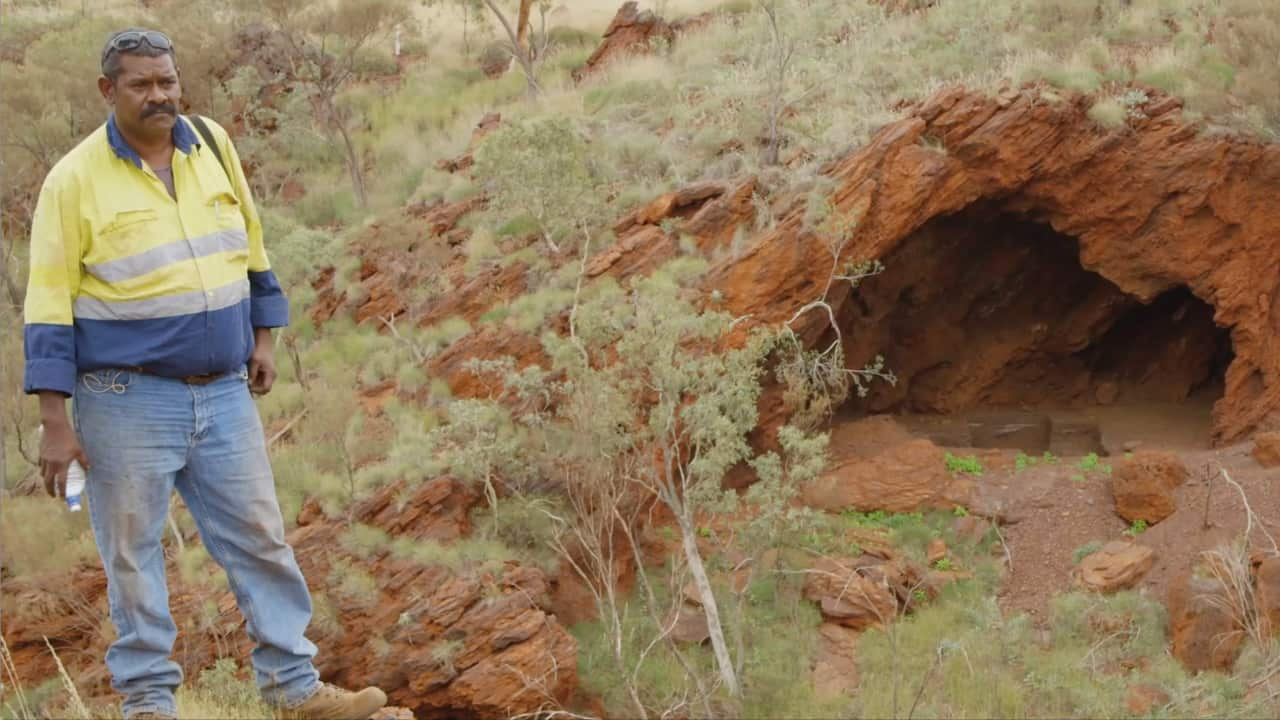Mining magnate Fortescue Metals Group has admitted that it withheld almost $2 million in royalties to Traditional Owners in Western Australia’s iron ore rich Pilbara region.
The Chief Executive Officer at Fortescue Metals Group (FMG), Elizabeth Gains, told the inquiry into the destruction of sacred caves at Juukan Gorge that it was working with the Wintawari Guruma Aboriginal Corporation to facilitate $1.9 million in payments "as quickly as possible".
In a grilling by Labor senator Patrick Dodson and Greens senator Rachel Siewert, the mining giant defended its actions saying the native title holders had not abided by the previously agreed land use agreements.
“We are working with the Wintawari Guruma Aboriginal Corporation to facilitate the payment of those native title compensation payments as quickly as we can," Ms Gaines told the inquiry.
“Wintawari Guruma have declined to sign those great deeds, and the only avenue available to us, was to withhold the compensation while we work through this practically.
“This is the first time in all of Fortescue’s history that we've done this, - we have seven other native title agreements."
FMG told the inquiry it had reached out to the Wintawari Guruma Aboriginal Corporation but had yet to receive a response.
The parliamentary inquiry is examining the events leading up to mining company, Rio Tinto, destroying the 46,000-year-old sacred sites, with heritage protection laws in WA now under review and intense scrutiny.

Fortescue Metals Group CEO Elizabeth Gaines admitted the company was withholding almost $2m in native title royalty payments.
Ms Gaines said she supports the revising of WA’s cultural heritage reviews which became law in the early 1970s - long before native title and land rights were recognised.
“So there are aspects of it that need to be modernised - including having equitable right of appeal to all parties and a greater voice for Aboriginal people," she said.
“We certainly support the intent of giving that greater voice to Aboriginal people, and ensuring that Juukan Gorge doesn't happen again."
FMG also defended its actions in the long running saga against Yindijbarndi people where a compensation case is looming.
The Federal Court recognised the Yindjibarndi people as having exclusive rights to more than 2700 square kilometres of land, including FMG’s Solomon mine, in 2017 with the Yindjibarndi winning a high court decision earlier this year after the mining giant appealed the decision.
“We are open to entering into a Land Access Agreement with the terms that are consistent with our other Land Access Agreements.
“They have not engaged with us in the protection of cultural heritage or survey activities across Yindjibarndi country,”
The inquiry also heard that Rio Tinto had broken the ‘social contract’ with the Traditional Owners, the PKKP peoples whose sacred sites were destroyed in the May 25 blast.
Hesta, one of the nation's largest superannuation companies which holds millions of dollars in shares from Rio Tinto told the parliamentary inquiry that lasting damage had been done.
The super fund’s head of impact Mary Delahunty is calling for a review into all land access agreements with mining companies to ensure they are fair and equal to Traditional Owners.
“It is imperative that they are reviewed to ensure they reflect contemporary fair and equitable expectations.”
They said the mining company’s public commitments had been out of step with both community standards and expectations and the Traditional Owners.
“That goes to the governance of the board, and senior management, to ensure that what you do when no one's looking is exactly what you will do when everyone's watching,” Ms Delahunty said.
An interim report prepared by the committee is expected before the end of the year.











